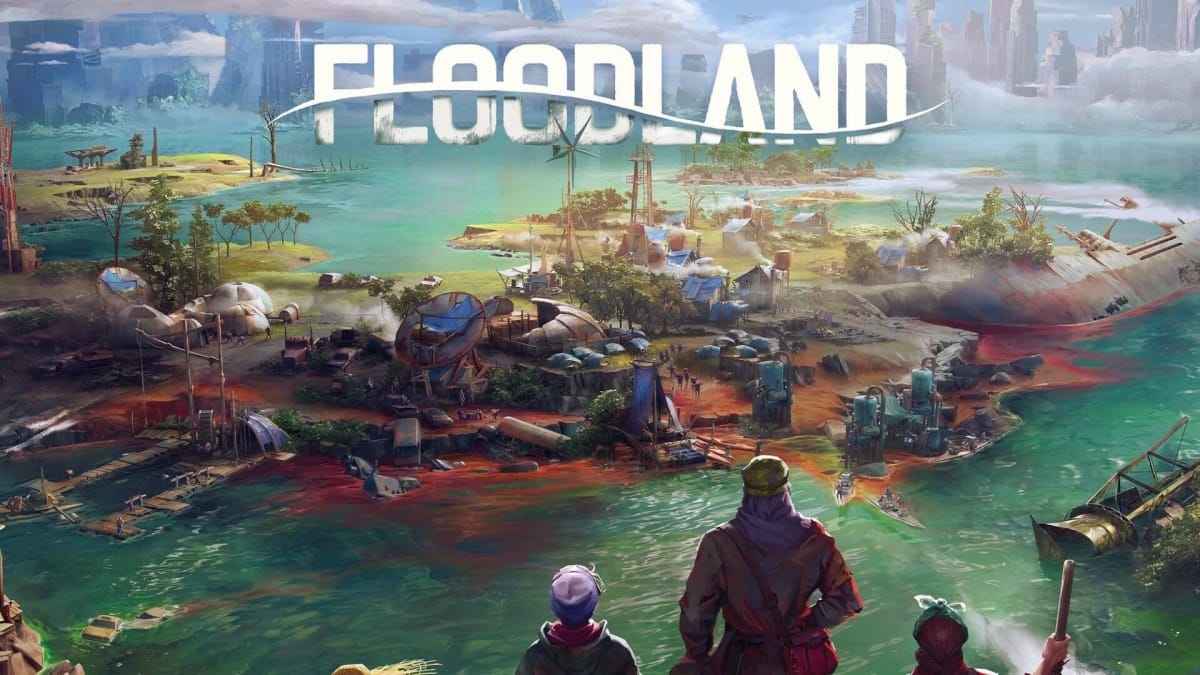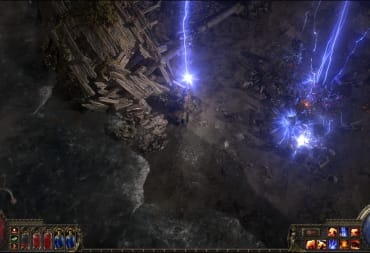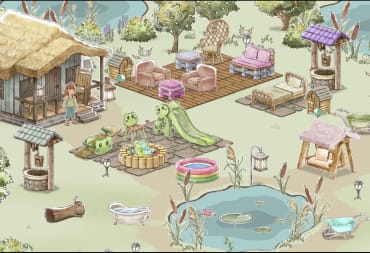Floodland, upon first glance, seems typical of the colony sim/survival genre. It carries the same mechanical beats of other games and doesn't truly break the mold in a way that allows it to, at least through most of its gameplay, stand out. Yet Floodland has a lot going for it the deeper you get into the game, though it is a relatively passive experience that I feel doesn't challenge the player as strongly as it can.
The hook of Floodland is a post-apocalypse where the earth is literally flooded. Think Waterworld but with more trash and islands, and less Kevin Costner. You are in charge of a little colony of survivors, building a new society on a small island where all you have for resources is berries, wood, and the leftover plastics from the now-destroyed modern world.
What helps sell this is how vast and dangerous the world has become. Everything is shrouded in a fog of war, yet the distant shores of the map are dotted by the remains of civilization; rusted water towers, decaying ocean liners, and skyscrapers barely standing as miniature islands in the sea around you. It is a simple but effective little visual, it invites the player to explore but keeps the game cloaked in mystery still.
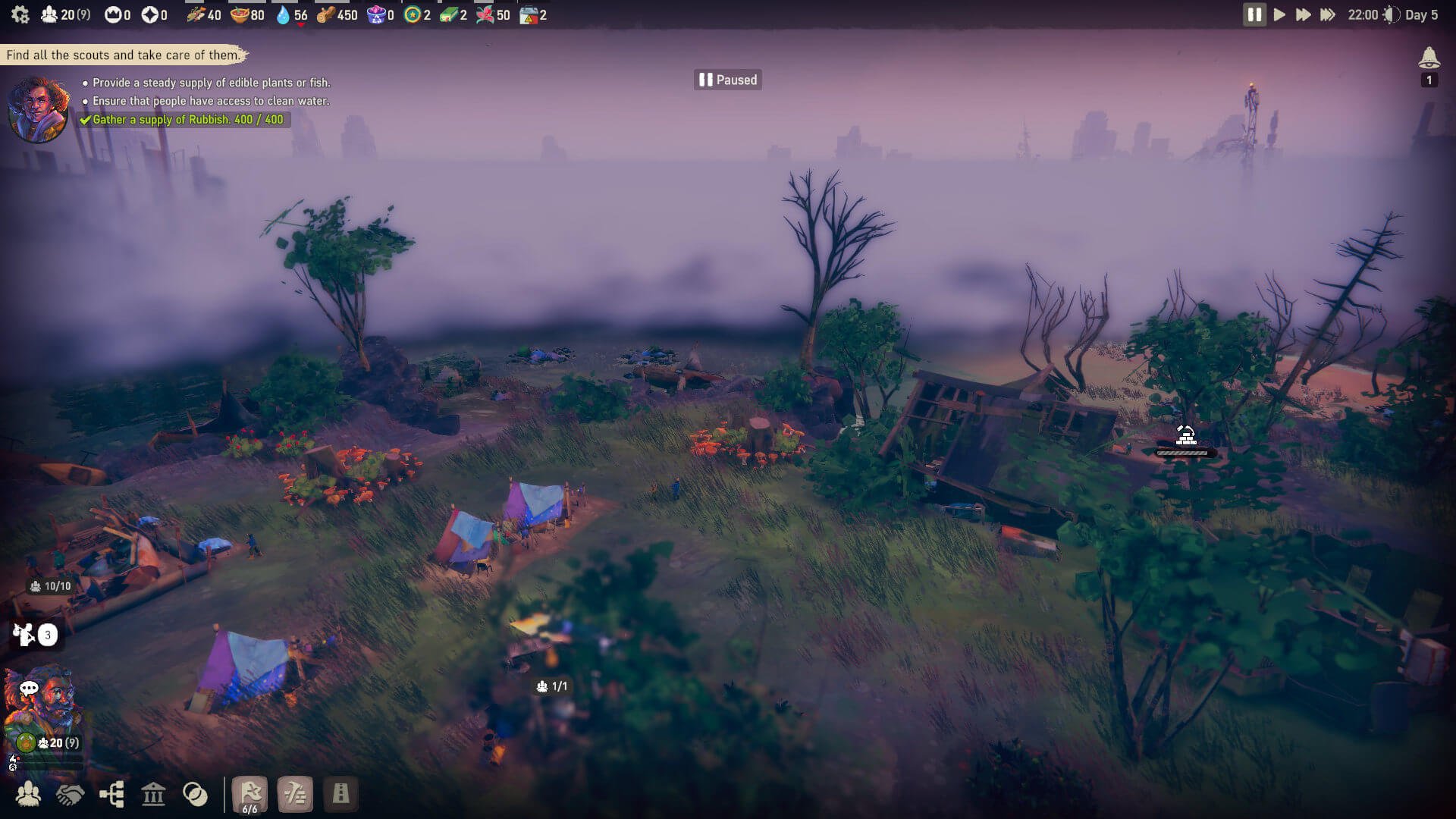
What is more typical of the genre of your progression in Floodland. Your starting colony has a few resources that you need to build up to survive. The real keys to this however are not just a hundred bits of food and plastic you need, but how you sort and progress through the game's version of their tech tree.
There are two major resources that should be mentioned that help separate Floodland; research and influence. Research allows you to unlock new building structures at your pace; so it is key to get research points to help your technology development. Influence, meanwhile, is the power you have within the community.
For influence, it can be raised by finding ways to provide happiness to your small colony of survivors, typically through recreational activities or even formulating new laws and government. Floodland is a bit unique in this way where it tracks political advancements, on a scaled axis, representing liberty and autocracy, and old-world and new-world ideas.
Along with this, you can track the unrest and other skills your clan can gain over the course of the game, and even directly influence them based on your playstyle. So if you want to be a more militant, law and order ruler, or a more free-form, explore and engage with others peacefully, those are both options for the player that allows Floodland to be more than a colony survival game.
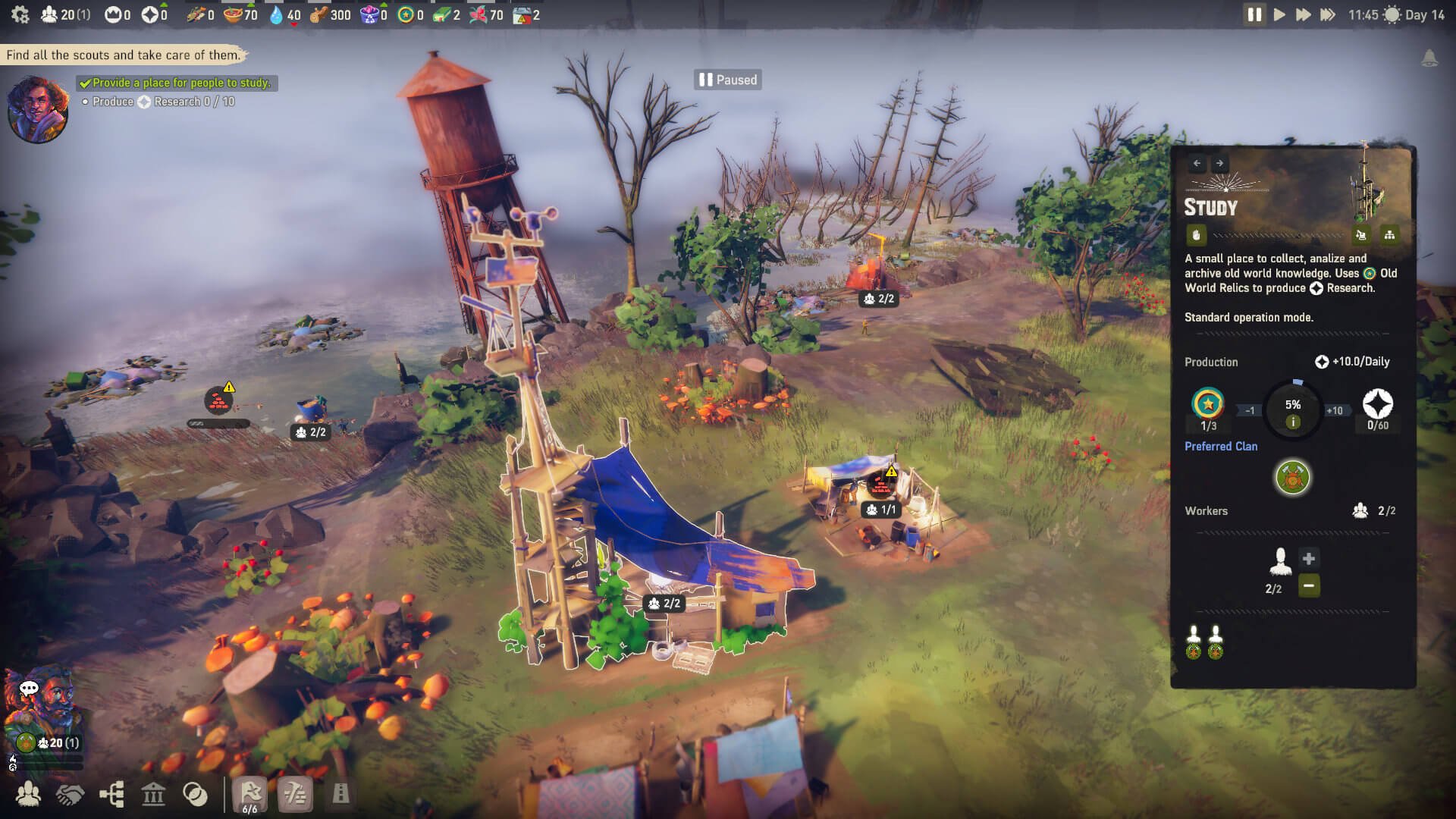
The interesting political schemes and laws come into play much later in the game, the main focus of course is surviving that long. To that end, research points are your main commodity. You gain research points by resolving objectives or finding relics to study. Research points can then be used to unlock technologies that come in four distinct categories; Survival, Living, Exploration, and Development. Each offers key structures you will need to grow your colony, and subsequently, increase your survival chances.
The beauty of the setup behind these technology trees is how free-form the unlocks are. Outside of the most basic tech in the game, you need to unlock certain resources to open up new technologies. These resources act as the keystones to your progression, so for example, rubbish can open the doors for water stills and other basic structures, while logs and wood open the doors for more complicated structures, like a logging camp or a field kitchen. The better your technology keystone, the stronger your technology becomes, and the quicker you can progress through and survive.
There are a few issues though with Floodland's flow, however. The biggest one is the massive amounts of micromanaging. Structures need to be built in specific locations to actually function; water stills near the shores of the water; rubbish sorter tents near giant piles of junk, and so forth. You also need people to use these structures to work, so assigning one to two people to a station is a necessity for the structure to function.
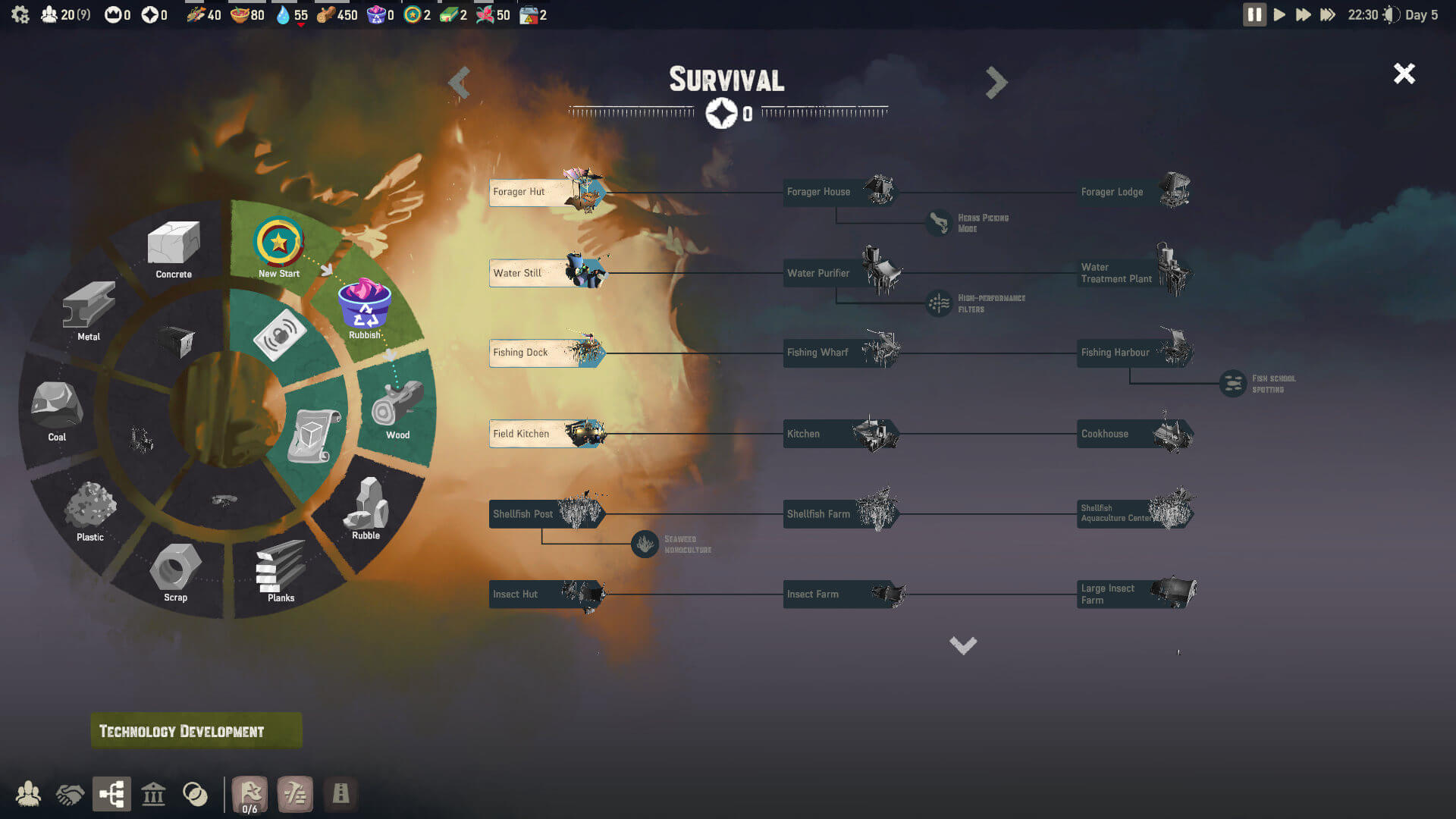
This may seem simple at first, but the size of your colony is limited in the early game, and you will need a lot of resources to slowly build up your structures and scavenge food and water to survive. What happens quickly is that some structures stand completely empty, not collecting food or junk or at half capacity for gathering water or doing research. I found myself toggling through multiple structures, simply pressing a button so the nameless colonist can focus on various tasks every other day.
Normally this kind of micromanaging is not a big deal, but when you couple it with a paradoxically large amount of downtime, Floodland becomes incredibly passive, borderline boring, in long stretches. It often will take days to explore or build structures for your colony, so you often spend more time moving colonists from building to building to make sure your survivors are healthy while maintaining a steady stream of resources, fast-forwarding through days at a time to complete a structure or get enough resources ready for a new project.
It's odd, because, after some trial and error, Floodland became relatively easy in terms of its difficulty. It is a slow game; where progression can take days of in-game time to establish your colony and keep your survivors happy. There are some random elements to shake things up of course; bad weather in particular can be devastating to your supplies, but otherwise, there is often very little hurting you directly once you get over the first few hurdles. Some planning ahead is needed to survive, but the game is forgiving if you make a few mistakes ultimately.
Regardless of the lack of difficulty or the long stretches of downtime, Floodland has a lot of elements that can make it a pretty engrossing experience. The atmosphere and premise are solid enough, but the potential found in the progression system and the interpersonal politics allow Floodland to stand out from other survival simulators.
TechRaptor previewed Floodland on the PC via Steam, using a copy provided by the publisher.
Previews you can trust: To ensure you're getting a fair, accurate, and informed review, our experienced team spends a significant amount of time on everything we preview. Read more about how we review games and products.
Have a tip, or want to point out something we missed? Leave a Comment or e-mail us at tips@techraptor.net
